Skype debuts Linux-powered cordless phone
Aug 31, 2006 — by LinuxDevices Staff — from the LinuxDevices Archive — 1 views Skype on Aug. 31 introduced a pair of cordless VoIP phones that work without being connected to a computer, via a DECT basestation that attaches directly to broadband and POTS lines. One of the two — the Philips VOIP841 — uses Linux as its embedded OS.
Skype on Aug. 31 introduced a pair of cordless VoIP phones that work without being connected to a computer, via a DECT basestation that attaches directly to broadband and POTS lines. One of the two — the Philips VOIP841 — uses Linux as its embedded OS.
(Click for larger view of the Linux-based Philips VoIP841 phone)
digg this story |
The phones, which use DECT as their wireless connection, integrate both normal and Internet phone calling. To accomplish this, each phone comes with a DECT basestation, which the user plugs into both a broadband connection and a “traditional” (aka “POTS”) phone line.
According to Skype, the phones will take advantage of several Premium Skype services, including SkypeOut, for inexpensive international calls to traditional landlines and mobile phones; SkypeIn, to receive calls from landline or mobile phones on Skype; and Skype Voicemail.
Skype says that both phones provide full-color graphic displays, “simplified calling features with an integrated contact list, and an enhanced speakerphone with great voice clarity.”
Although Philips had not responded to LinuxDevices.com's requests for further specifications and other information regarding its Linux-based VOIP841 cordless phone by publication time, we were able to obtain the following screenshots. Other than the fact that the device runs Linux as its embedded software platform, and this colorful array of screenshots, we have no further details at this time.
Earlier this year, Dutch telecom service provider KPN began shipping a Linux-powered cordless videophone, also manufactured by Philips, in the Netherlands. However, unlike the VOIP841, the Philips VP5500 uses WiFi as its wireless connection.
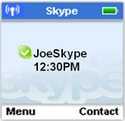

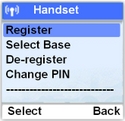


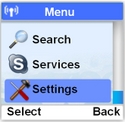
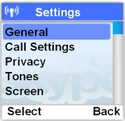

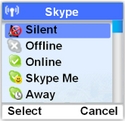
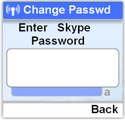


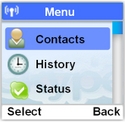

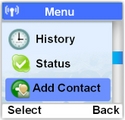
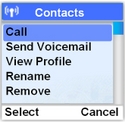
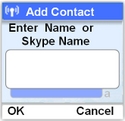
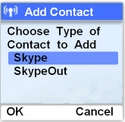
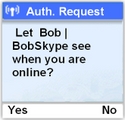
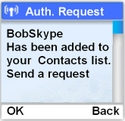
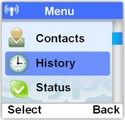

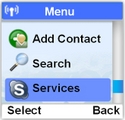
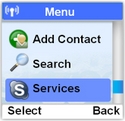
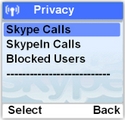
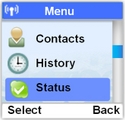
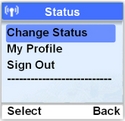
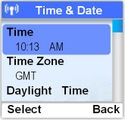
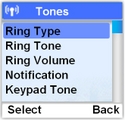


Unlike Philips, Netgear declined to reveal the nature of its cordless DECT phone's embedded operating system, but left open the possibility that it, too, uses a Linux platform. “The embedded operating system and the chipsets we use are proprietary information that we do not disclose openly, unfortunately,” a source within Netgear told LinuxDevices.com.
This article was originally published on LinuxDevices.com and has been donated to the open source community by QuinStreet Inc. Please visit LinuxToday.com for up-to-date news and articles about Linux and open source.